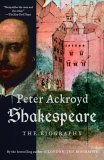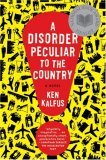In a blog post that also appeared in The Guardian, Amanda Craig voices her suspicion that publishers favor younger women writers. [UPDATE: link no longer works.] “Up until the 1980s,” she writes, “it was expected that novelists would be people of some age and experience.”
Today, however,
publishers would far rather I were some stripling of twenty-five. Novelists now regularly get their teeth done (I am not going to mention Martin Amis, because his really were a medical necessity.) We all, if female, discuss plastic surgery with increasing urgency and interest, and every so often one or two disappear and return looking strangely fresher.
Holy denouement Batman!
Being a writer now requires a gal to become superficial and obsessed with her looks????
Deep breath.
Okay.
I could take some cheap shots at “the publishing industry” here, but I won’t, because A. you don’t need me to, you can compose a few zingers just as well yourself and B. I rather like the publishing industry and feel a bit sorry for it, and want to leave it alone.
And publishing, as a business, is more like gambling than anything else.
I can understand the inclination to place a bet on someone who is at the dawn of her professional life, rather than someone who spends weekends shopping for cemetery plots.
But where does that leave “the novel” — you know? The novel as an art form. That “the novel.”
Let me tell you a secret. I tried to write novels when I was in my 20s.
I couldn’t. And I know why, now. I had nothing to say.
When it came down to putting something to paper, the only time I felt I was being honest was when I wrote poetry, because the only thing I “had” was emotion; the only thing I could do as a writer that had any integrity as I understood it was to wallop a handful of emotion up against some lamp post or car door or fella and put some words around what it felt like.
It’s a limitation common to every young writer. It has to be. It takes time to build a rich enough frame of reference to do anything else. It takes years and years.
How does a young writer get around that?
Why, by studying the “craft” of writing. You know! Because by using the “craft” of writing, you can fashion something out of nothing. You add a little verby glue to your nouny sawdust and mold it and sculpt it into the dearest characters, the most fetching characters, the most charming plots. Anyone can do it! Anyone can.
Only tell me this. What does such a novel accomplish?
I’m being serious here.
I’ve been thinking about it a lot, because I often abandon novels half-read. Very often, appallingly often. And these are “well-written” novels in the sense we’ve come to understand “well written” today. But there is something missing from them — they leave me with the feeling that they are wasting my time. So my question is: for what am I trading the three, four hours that it takes me to read a novel? What I am getting in return? Entertainment? Diversion?
Diversion?
If that’s all, then “craft” is all the novelist needs. Bless you then, dear writer, go off and craft to your heart’s delight. Goodness knows there’s a huge market of people who crave diversion.
But what if I want more? What if I want my life to be changed? What if I want to be the guy who read David Gemmel’s The Legend, and then when he saw another guy being beaten up, he heard the words “What would Boromir do?” and intervened, and saved a man’s life?
What if I want the novel I read to somehow become a transformative experience for me?
Can such a novel be written by a 20 something equipped with nothing more than craft and a handful of emotion to wallop up against things?


